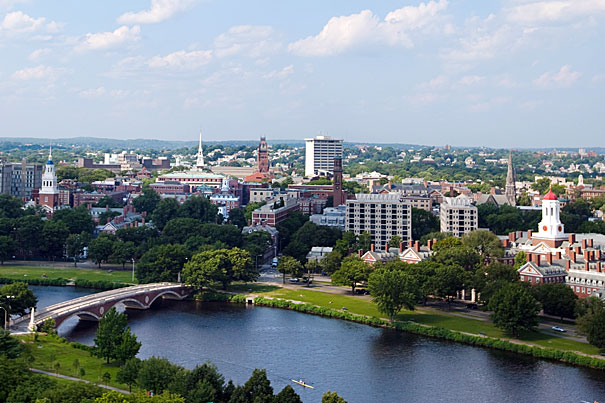
Harvard University,
Looking north at The Charles River, Harvard Square and Harvard University from One Western Avenue.
Staff Photo Rose Lincoln/Harvard News Office
Harvard Defends Affirmative Action in Supreme Court Case
Harvard is calling on the Supreme Court to preserve affirmative action in college admissions.
Bloomberg reports that the Ivy League school filed a brief last Monday in one of the court’s upcoming cases arguing that affirmative action is necessary to ensure a diverse student body. Harvard is urging the court not to adopt a requirement for “color-blindness” in admissions.
“Absolute neutrality has never been a universal constitutional principle,” Harvard states, adding that the creators of the 14th amendment viewed race-conscious measures as necessary in order to ensure “equal participation in society” for Black people.
HOW DOES AFFIRMATIVE ACTION AFFECT DIVERSITY?
While affirmative action is common a selective universities, nine states currently ban race-conscious admissions at public institutions. Those states include California, Washington, Florida, Michigan, Nebraska, Arizona, New Hampshire, Oklahoma, and Idaho.
But recent research shows that in states that banned affirmative action, fewer Black, Latinx, and Native American students were admitted to and enrolled at public universities.
“The study found that at UC-Berkeley, the underrepresentation gap before the ban on affirmative action was 14.9 percentage points,” according to Georgetown University. “The year after the ban, it widened to 24.9 percentage points and was 34.4 percentage points by 2015.”
Currently, a date for oral arguments in the Supreme Court case is pending. But based on normal scheduling practices, the court will likely hear Harvard’s cases starting October 31. Case decisions are expected to come by July 2023.
Sources: Bloomberg, Brookings, Georgetown University











Questions about this article? Email us or leave a comment below.